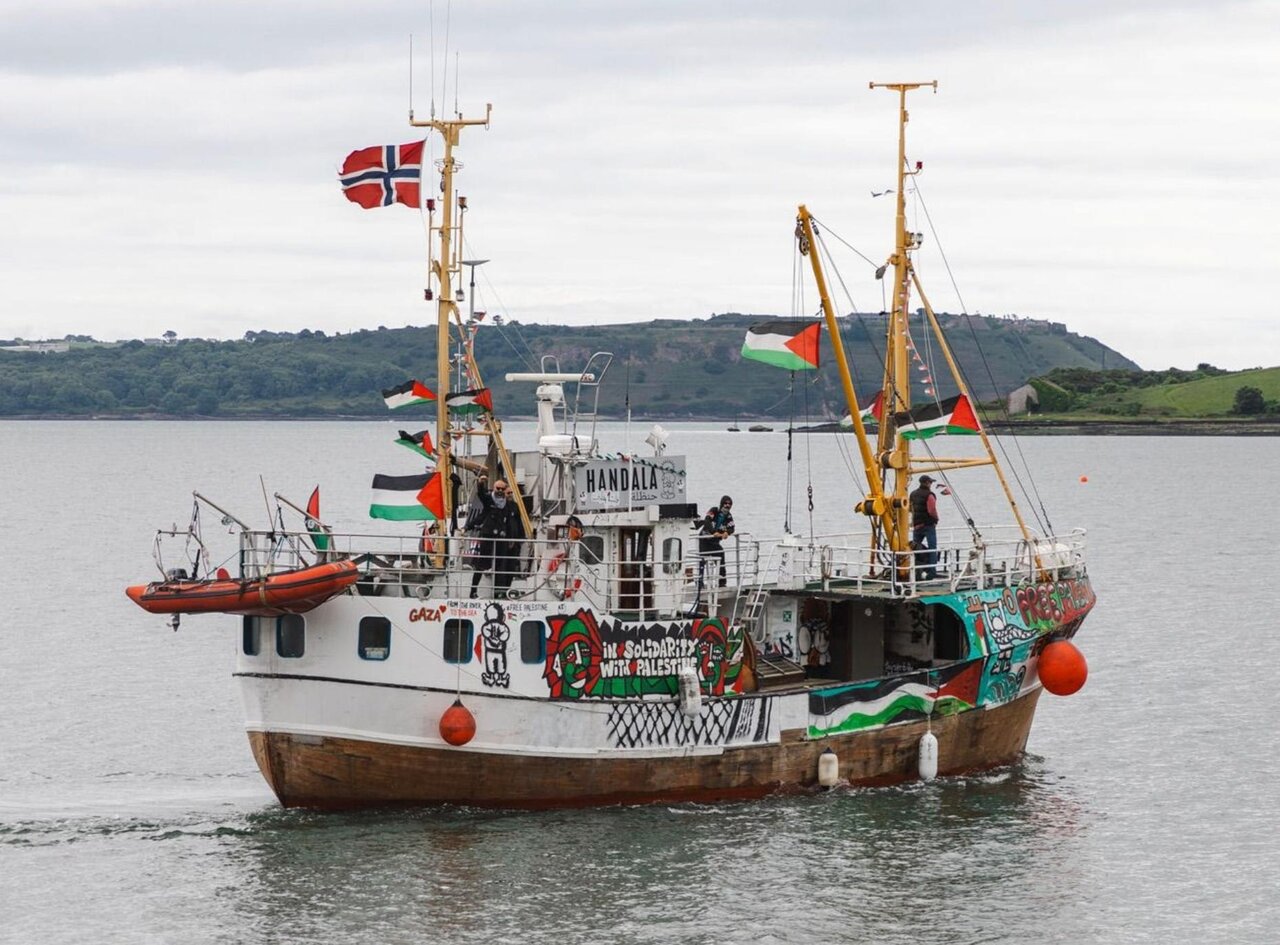Handala embarks on lifesaving voyage to break Gaza siege

TEHRAN - With the continuous deterioration of the humanitarian situation in Gaza, the departure of the Handala flotilla has found its way into international efforts to feed starved populations and highlight the need for an emergency political decision.
The vessel organized by the Freedom Flotilla Coalition (FFC) carries life-saving supplies for hungry kids and an even louder voice against the continuing blockade.
At the heart of Handala’s mission is to provide immediate relief to the children of Gaza, who face acute malnutrition and deprivation after months of blockade-induced shortages.
The vessel is filled with baby formula, life-saving medicines, and staple foods, bound for communities caught up in infrastructural collapse and food scarcity. While the scale of need in Gaza has never before been witnessed, international agencies estimate that more than half of the population consists of children, many of whom are on the verge of starvation due to the restrictions on humanitarian aid and attacks on civilian infrastructure.
Yet, Handala's role goes beyond delivering supplies. The organizers insisted that their trip is an expression of solidarity and resistance. They challenged the legitimacy of the blockade and called for it to end.
Their trip is stated as an attempt to "break the siege," which allows them to build an international discussion, not only on humanitarian obligations, but the legal and ethical implications of the blockade as well.
Crew reflects international solidarity
Handala’s diverse crew of 21 activists from ten countries embodies a global wave of solidarity with Gaza, uniting parliamentarians, human rights lawyers, medical professionals, journalists, and seasoned sailors.
Seven U.S. citizens are on board, including Palestinian-American lawyer and seasoned flotilla veteran Huwaida Arraf and Amazon Labor Union founder Chris Smalls. France contributes prominent figures such as parliamentarian Gabrielle Cathala, member of the European Parliament Emma Fourreau, and nurse Justine Kempf, who brings extensive field experience with Doctors Without Borders.
Seventy-year-old Norwegian activist Vigdis Bjorvand, nearly half a century into Palestinian solidarity work, is joined by Italian journalist and anti-mafia campaigner Antonio Mazzeo and Spanish engineer-activist Sergio Toribio, notable for legal action following another flotilla’s interception.
Handala distinguishes itself as a civilian, grassroots initiative—its participants have resigned from jobs, braved sabotage, and risked their lives to deliver aid and affirmation of rights to Gaza’s children, where official pathways have failed.
Sabotage and escalating risks
Handala departed from Gallipoli, Italy, on July 20, entering international waters as the final phase of its voyage to Gaza began. Just prior to departure, the mission was marred by two sabotage incidents: a rope wound around the propeller and the delivery of sulfuric acid instead of fresh water—an act that injured crew members with chemical burns.
Despite these life-threatening challenges, the team managed to resolve the crisis and proceed, drawing renewed attention to both the dangers of their journey and the lengths to which opponents may go to impede the mission.
To mitigate further risks—particularly the threat of Israeli naval interception, which has derailed earlier flotilla attempts—the coalition equipped Handala with advanced tracking technology.
Developed with Forensic Architecture, the tracker enables real-time public monitoring of the vessel’s progress and aims to deter surreptitious interference. This public transparency is expected to garner global public opinion and protect the ship from any unauthorized actions at sea.
Political and legal implications
The coalition is asking governments to make the vessel's passage safe under maritime conventions and humanitarian standards. The campaign raises two questions, namely, whether world powers will uphold their commitments to protecting civilians, and whether media scrutiny will generate the diplomatic pressure necessary to prevent more deaths at sea.
For Gaza’s besieged population, Handala embodies hope for both immediate relief and long-term liberation from the cycle of deprivation. The ship’s progress—intensely monitored by supporters and adversaries alike—now stands as a barometer for broader efforts to address Gaza’s starvation crisis not only through aid, but through an end to structural violence.
As the ship navigates perilous waters, its mission illuminates the dire consequences of inaction amid starvation and calls upon the world to honor the fundamental right to dignity and safety for Gaza’s children.
Leave a Comment